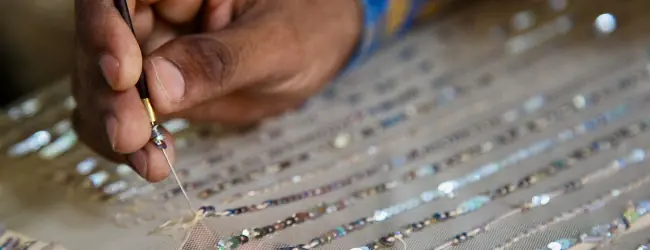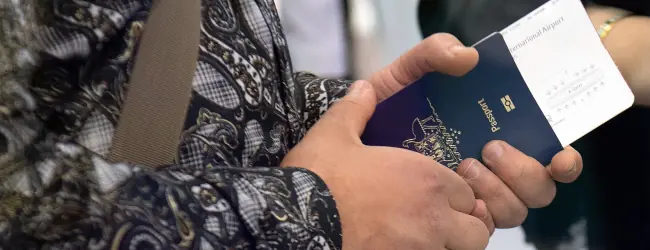In the previous article (this article), I talked about my new theory of an inferiority complex. Many people believe that an inferiority complex is a mental problem for individuals, but in my opinion, it is not.
So today, to explain the whole system of an inferiority complex, I will talk about two types of societies: competitive society and stability-oriented society. Although I showed its overview in the previous article, I will explain it more deeply.
How to find a better society
Sometimes, we feel helpless and lonely because no one will help us. Perhaps it is when we are the weakest people in our society with the same values. Everyone can do better than us. That makes us feel miserable and worthless.
And sometimes, such a helpless situation makes us suffer. We might try to work harder to prove our worth. If we cannot accomplish it, we might punish ourselves by being patient and doing harder. Finally, after our exhaustion, we will be depressed. Perhaps that is the flow of the inferiority complex.

In such a case, we can migrate to another society to show our talents. That allows us to escape that situation and resolve our inferiority complex.
But sometimes, it feels hard to do because we have negative feelings, such as being a loser or accepting our faults. That prevents our migration to another society. Or we sometimes continue to migrate to a similar society that suffers us, even if we want to change our environment. They keep us in a suffering situation.
So today, I will talk about two types of societies: competitive society and stability-oriented society. This knowledge might show us a better environment and allow us to migrate there.
The two types of societies
In my opinion, there are two types of societies, as follows:
- Competitive society: A society that values winning or accomplishing. This society can grow in the short term, but it usually leaves behind weak people. So once it loses its competitiveness or attractiveness, it will decline soon.
- Stability-oriented society: A society that values stability. This society can remain stable in the long term due to helping weak people, but it is hard to grow. So, it is hard to be competitive and attractive, even in the long term.
These two are tendencies. So, societies usually have both aspects. But knowing this difference helps us find a suitable type of society.

The tactics to find a better society
To find a better environment, I will show the main tactics below:
- When we don’t know our talents: Finding a more stable-oriented society would be efficient. This is the lower-risk, lower-return way. We can get more help, even if we keep staying weak. But it is hard to show our talents.
- When we can see our talents: Finding a society that interests us would be efficient. This is the higher-risk, higher-return way. We could show our talents. But we could fail due to misunderstanding our talents.

Perhaps these tactics above are easy to understand. If we are weak people in a society, it is better to find another place that has different elements: different values or care for weak people.
An environment with care for weak people
A society with cares for weak people tends to be unattractive for many people because it doesn’t aim to accomplish something proactively. But it doesn’t matter because we don’t know our talents. So it helps us.
And sometimes, it may be easier to find our talents because we have to do various things. For example, small offices in rural areas may tend to do various kinds of tasks. In other words, we can try various things in one place. So we could find tasks that interest us easier, although we cannot concentrate on them.

In such a protected place, we can relax. And that makes us feel like trying something. It is a sign that we have found some talent or possibilities in ourselves. Perhaps that is the time to give it a try.
Trying different values
On the other hand, if we can see our talents from the beginning, we can try them. Although we often misunderstand what the core talents are, this continuous trying and feedback will lead us to an ideal environment.
Sometimes, we might feel it is too irrelevant to try. Or too worthless to accomplish. However, it is evidence that the activity is based on different values. So, the more we feel that way, the more worth a try.

If we confuse these types of societies, we may keep struggling with our inferior complexes. We might refuse a stability-oriented society. Or we might continue to shift to competitive places that have similar values. If so, we would be exhausted.
If we were born into competitive families
Usually, businesses tend to be competitive because creating higher value is their purpose. On the other hand, public offices, social activities, or families tend to be stability-oriented because protecting members is the most fundamental purpose.
But sometimes, there are competitive families without care for weak members. There could be successful people. But at the same time, there could also be weak people. These weak members tend to have inferiority complexes.

After the family loses its competitiveness, it tends to fall apart soon, in my opinion. That is the same as business. That is not the fault of the weak members.
But it doesn’t mean the end of us. We can let go of our inferiority complex, even if we were born into a highly competitive family as weak children. We can migrate to a society that suits us. That allows us to let go of it.
Society has values. And it is usually difficult for a single weak person to change it. So, migrating to another society would sometimes be the best way to resolve our inferiority complex. Then, we can create our happiness freely without feeling guilty.
Conclusion
So, there are two types of societies: competitive society and stability-oriented society.
And migrating to another society would sometimes be the best way to resolve our inferiority complex.
This knowledge might show us a better environment and allow us to migrate there.
Thank you for reading this article. I hope to see you at the next one.


